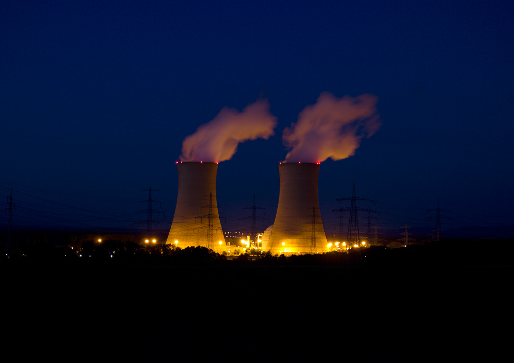
The Future of Nuclear Technology
Climate change is one of the leading global issues of this century. As more states and organizations recognize the dangers of climate change, it is clear something must be done. Despite significant growth in the renewable energy sector, the US still gets two thirds of its electricity from carbon-emitting sources. The largest share of carbon-free electricity production in the United States comes from nuclear power. In fact, it produces more electricity than all other renewable sources combined. An additional benefit of nuclear energy is that it is available reliably 24 hours a day. Nuclear energy is a vital tool to provide a large amount of the electric grid with carbon-free baseload supply, and is poised for a resurgence in the United States.
The United States has an opportunity for nuclear power revival. Domestic reactors are reaching the end of their planned service lives. Upgrades and repairs made to lengthen their lifespans are temporary measures and, eventually, the old reactors will have to be replaced. American utility companies are interested in future nuclear technology to replace current reactors as they retire. Soon advanced nuclear reactors could revolutionize the way we use nuclear power. Advanced nuclear reactors can provide more energy with much less fuel. They produce less waste per megawatt than current reactors. The increase in fuel efficiency would allow the US to fuel its reactors indefinitely through its current uranium stockpiles and through sea-water uranium extraction. In addition, small modular reactors can provide moderate amounts of nuclear power in much smaller facilities, which can allow them to replace retiring coal or gas plants more economical option for utility companies. Investments now in advanced nuclear technology will pay off dividends for our future. Fusion power is also an important green nuclear technology for the future.
Nuclear technology makes good financial sense as well. According to Leslie Dewan, CEO of Transatomic Power, a fourth generation nuclear reactor will be price competitive with an equivalent coal power plant given a forty year reactor lifetime. Utilities will not have to choose between cost efficiency and environmental responsibility anymore. This cost efficiency can be even more pronounced in countries that do not have substantial domestic coal resources.
The US public at large firmly supports nuclear energy as a power source both domestically and as an export industry. According to a poll conducted by Bisconti Research 86 percent or respondents stated that “we should renew the license of nuclear power plants that continue to meet federal safety standards” and 83 percent of respondents “believe it is important for the U.S. nuclear industry to play a leading role in world markets.” The four most important factors to energy consumers according to the poll are reliability, clean air, energy security and cost; categories in which nuclear power excels. It is clear that the US public’s interests are in line with the benefits of nuclear power.
Nuclear energy is an important industry for the future of the United States. The advanced technology in the industry will be a key building block for a carbon-free American energy future, which can be sourced entirely domestically. Furthermore nuclear reactor export is an industry that provides tremendous wealth and over a hundred thousand American jobs. Leadership in Washington needs to ensure the nuclear industry has the proper avenues for growth. With both proper financing for the export industry, and through fair regulation for future development.





